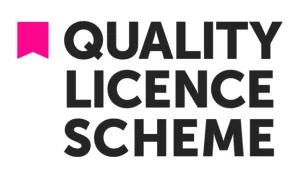Welcome to Open Learning College – Change your career, Increase your salary, and Improve your life.
 Course Overview
Course Overview 
Embark on a transformative learning journey with the UK’s most innovative home study provider, offering courses designed to unlock your true potential and facilitate the career change you desire. Access our distance learning courses directly from anywhere, anytime, and acquire industry-recognised Professional Qualifications essential for advancing in your career.
Specifically, explore the flexible and convenient Family Counselling (Level 3) course, an ideal way to gain a diploma qualification. Whether you aim for further education, improved job prospects, or expanded knowledge, this comprehensive course allows you to prepare thoroughly for exams or careers through home study. Plus, it’s structured to be accessible and beneficial even if you have no prior knowledge in Family Counselling.
This course is accepted by ACCPH at Level 3 and allows you to join as a professional member after graduation.
Families are ideally a great source of love, security and support, but sometimes, relationships within families can become strained and this is where family counselling comes in. Family counselling can be very helpful when family members are experiencing problems, or when parents and children are going through a separation or divorce.
Two important developments within family counselling during the past 60 years has been the systemic formulation and integrative practices which links the theory and practical aspects. In addition to the counselling approaches you will be studying, you will look at various working models and theories specific to this field will be explored, as well as the following concepts: meta-communication, genograms, triangulation, open and closed systems, reframing, solution focused counselling, goal setting and reflective practice.
Specific attention will be given to psychodynamic, cognitive behavioural and person-centred approaches, which will give students a fuller working knowledge and understanding of advanced counselling skills. In specialist counselling fields, these advanced skills are necessary in order to be able to recognise and deal with the complex range of client needs, together with being able to understand the origins of these particular emotions and possible physiological factors.
This Level 3 Diploma course is designed to follow on from and complement a basic or introductory counselling skills course. Reappraisal of basic counselling skills and core knowledge will be covered, together with a detailed examination of the five approaches or theories of counselling.
 Course Key Topics
Course Key Topics
the Family Counselling (Level 3) course is divided into 10 modules.
Module 1: Introduction, Outline of Family Cycle and Reappraisal of Counselling Skills
This module focuses on the concept of the family cycle and reflects on previous counselling knowledge. Five main approaches in counselling are explored, namely, the work of Freud, Rogers, Skinner, Ellis, Jung and Egan is outlined, along with their corresponding counselling approaches. Students consider in detail the term ‘family cycle’, in terms of modern society.
Module 2: The Psychodynamic Approach Relevant to Family Counselling
This module examines the psychodynamic approach and its usefulness in family counselling. This approach may have special significance in the context of various family attachments and potential issues that may arise. The process of change from Freud’s original theories to the more social and relationship based approaches of the psychodynamic therapies is identified and explained.
Module 3: The Cognitive Behavioural Approach Relevant to Family Counselling
In this module, students gain understanding of the key concepts of the cognitive behavioural approach to counselling in the family context. Students also learn about conditioning and social cognitive theories. The module describes cognitive techniques, their applications and relevance to family counselling. Students gain confidence in the ability to integrate such components with other counselling approaches.
Module 4: The Person-Centred Approach Relevant to Family Counselling
In the study of this module, students learn key elements of the person-centred approach to counselling. The hierarchy of needs is explained in relation to counselling. Person-centred techniques and their relevance and application to family counselling are explored in detail.
Module 5: Ethics, Consent, Counsellor Responsibilities and Historical Background
This module focuses on key aims of counselling and includes confidentiality and ethical conduct within the counselling role. Students have the opportunity of considering the integration of different counselling approaches suitable for client need. Relationships within family groups are defined and explored. Boundaries or limitations of counselling are also identified and defined. The module also looks at what types of consent and responsibilities the counsellor has to seek. In addition to this, some historical background of the development of family therapy since the 1950’s is described, together with the emergence of the therapeutic concepts in use today.
Module 6: Main Concepts
This module addresses the family lifecycle, including nuclear and extended family influences on family life. Students gain understanding of the main concepts associated with modern family counselling.
Module 7: Processes in Family Counselling (Part 1)
This module explains the process of accurate and effective client assessment. The subsequent planning of counselling programmes is described. Students learn about the deconstruction of issues, engaging helpfully with family members. Also, the reframing and construction of intervention is examined. This leads to positive counselling outcomes. Students also gain confidence in the use of genograms and scoring systems.
Module 8: Processes in Family Counselling (Part 2)
This module continues from the previous one by discussing positive interventions, feedback loops, progressive hypothesizing and contexts of behaviour and interventions
Module 9: Focus on Specific Problems (Part 1)
This module considers important relationships within the family and specifically discusses depression, anxiety and associated psychological problems within the family that may be encountered within the counselling context. It will also examine alcohol and drug problems within the adult family members and their repercussions.
Module 10: Focus on Specific Problems (Part 2)
With the completion of this module, students gain understanding of issues surrounding abuse and its different connotations within the family. The role of the counsellor in this context is explained. Relationship difficulties between parents and children are explored, along with the challenges of child alcohol and other substance misuse.
(Please click on the curriculum tab above to see a detailed view of each module)
Course Content
Family Counselling (Level 3) – FREE Starter Pack
How to…. (a series of explainer videos)
Module 1 – Introduction, Outline of Family Cycle and Reappraisal of Counselling Skills
Module 2 – The Psychodynamic Approach Relevant to Family Counselling
Module 3 – The Cognitive Behavioural Approach Relevant to Family Counselling
Module 4 – The Person-Centred Approach Relevant to Family Counselling
Module 5 – Ethics, Consent, Counsellor Responsibilities and Historical Background
Module 6 – Main Concepts
Module 7 – Processes in Family Counselling (Part 1)
Module 8 – Processes in Family Counselling (Part 2)
Module 9 – Focus on Specific Problems (Part 1)
Module 10 – Focus on Specific Problems (Part 2)
Course Resources
Final Exam
College Announcements
🔍 Unlock the Family Counselling Level 3 with £50 OFF the Course! 👨👩👧👦💷
Ready to explore the rewarding field of family counselling and support individuals in their relationships?
For a limited time, seize the opportunity to enrol in our Family Counselling Level 3 course with an exclusive £50 discount!
Use code FAMCOUN50 at checkout before the month concludes!
🌟 Why Choose Our Family Counselling Level 3 Course
Presented by Open Learning College, this course is your pathway to understanding the dynamics of family relationships and providing effective counselling. Dive into comprehensive modules covering essential topics—from communication skills to resolving conflicts within families. Gain practical insights into supporting individuals and families in their journey towards better relationships.
💡 What Makes Our Course Shine
Expert Guidance: Benefit from experienced tutors providing support throughout your learning journey.
Real-World Skills: Acquire practical knowledge crucial for success in the field of family counselling.
Flexible Learning: Tailor your studies to your schedule with 24/7 access to course materials.
Don't miss this chance to unlock the secrets of family counselling at a discounted rate! Enrol now, use code FAMCOUN50* at checkout, and embark on your journey towards becoming a skilled family counsellor. 💷🌿
*This discount code cannot be used in conjunction with any other offer.









 Get Social!
Get Social!







Olivia Carter